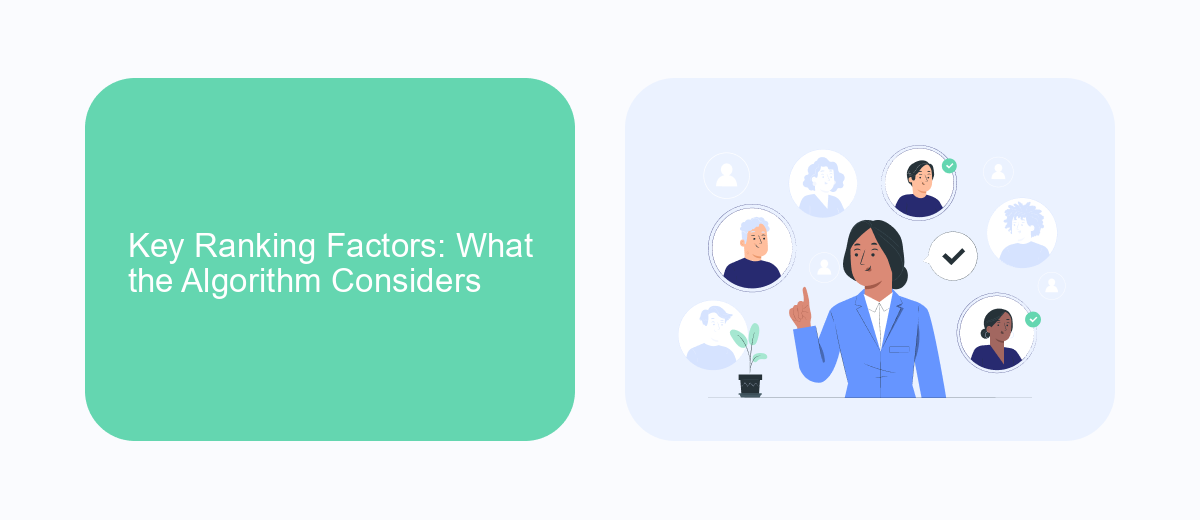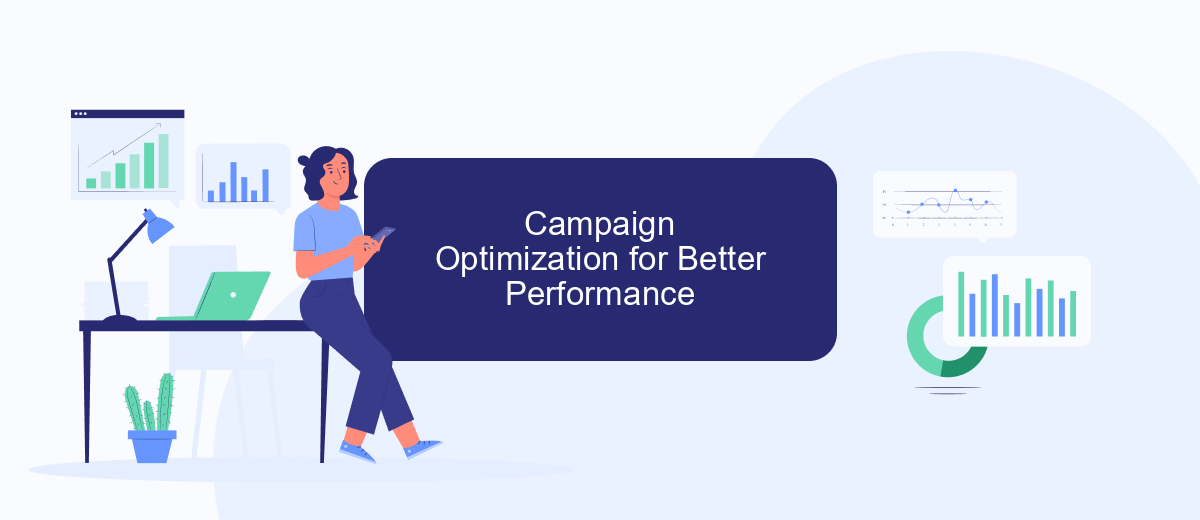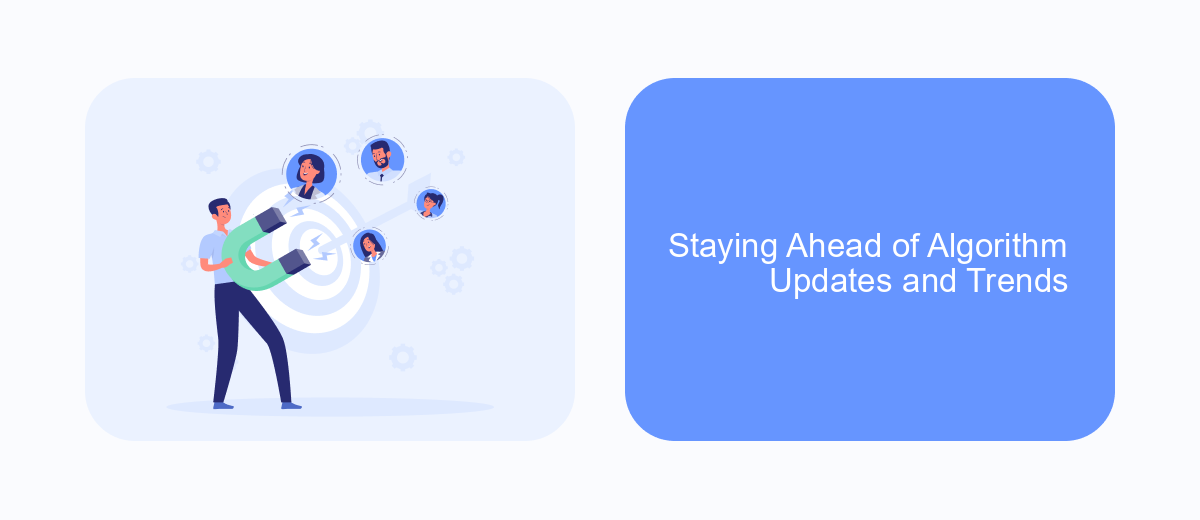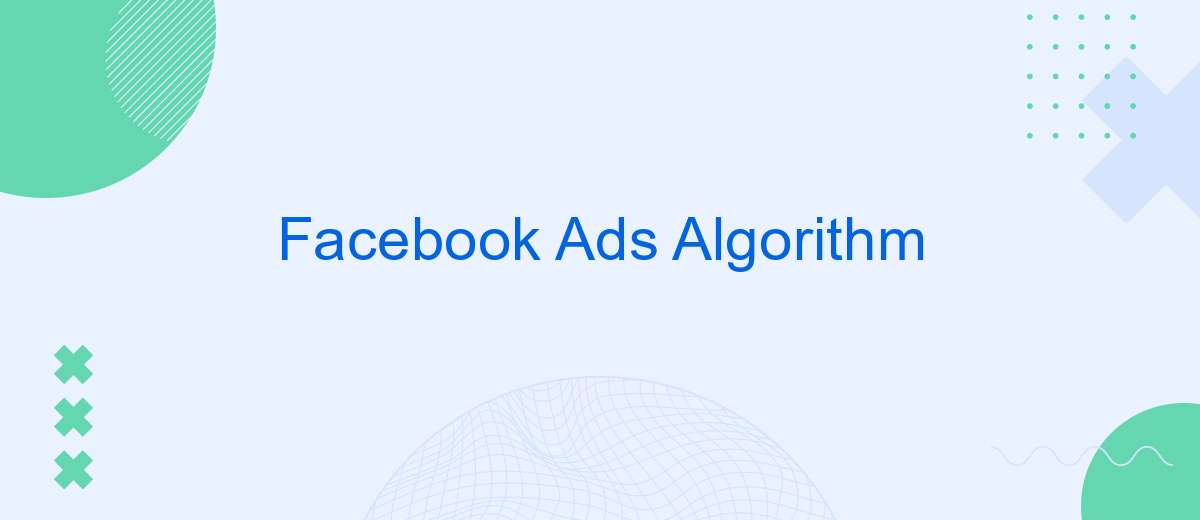The Facebook Ads Algorithm is a powerful tool that enables businesses to reach their target audience with precision and efficiency. By analyzing user behavior and preferences, the algorithm optimizes ad delivery to maximize engagement and conversion rates. Understanding how this algorithm functions can help marketers craft more effective campaigns, ensuring that their message resonates with the right people at the right time.
Understanding the Facebook Ads Delivery System
The Facebook Ads Delivery System is a sophisticated mechanism that determines how ads are distributed across the platform. It uses a combination of machine learning algorithms and user data to optimize ad delivery for desired outcomes. Advertisers need to understand this system to maximize their ad performance and reach the right audience effectively.
- Auction Process: Ads compete in an auction to determine which ones are shown to users.
- Ad Relevance: The system evaluates the relevance of an ad to the user, considering factors like engagement history.
- Budget and Bidding: Advertisers set budgets and bids that influence ad visibility and reach.
- User Targeting: Ads are delivered based on user demographics, interests, and behaviors.
- Ad Performance: Continuous monitoring and adjustments are made to improve ad effectiveness.
Understanding these components helps advertisers create more effective campaigns by aligning their strategies with the delivery system's operations. By optimizing ad relevance and targeting, advertisers can achieve better engagement rates and return on investment. Continuous learning and adaptation are key to leveraging the full potential of Facebook's ad delivery system.
Key Ranking Factors: What the Algorithm Considers

The Facebook Ads algorithm evaluates several key ranking factors to determine which ads to display to users. One of the primary considerations is the relevance of the ad content to the user's interests and behavior, which is assessed through engagement metrics such as likes, comments, and shares. The algorithm also takes into account the ad's quality and the user feedback it has received, ensuring that only high-quality ads are prioritized. Additionally, the bid amount plays a crucial role, as advertisers compete in an auction system where higher bids can increase the likelihood of ad placement.
Another significant factor is the estimated action rate, which predicts how likely a user is to interact with an ad based on their previous behavior. Furthermore, the algorithm considers the ad's target audience and how closely it matches the demographics and interests of potential viewers. For businesses looking to optimize their ad campaigns, services like SaveMyLeads can streamline the integration of CRM systems, ensuring that leads generated from Facebook Ads are efficiently managed and followed up, enhancing the overall effectiveness of advertising efforts.
Campaign Optimization for Better Performance

Optimizing your Facebook Ads campaign is crucial for achieving better performance and maximizing your return on investment. By refining your approach, you can reach the right audience more effectively and improve the overall efficiency of your ad spend. Here are some key strategies to consider:
- Audience Segmentation: Break down your target audience into smaller, more specific groups. This allows for more personalized ad content, which can lead to higher engagement rates.
- Ad Creative Testing: Continuously test different ad creatives to identify which visuals and messaging resonate best with your audience. A/B testing can provide valuable insights.
- Utilize Custom Audiences: Leverage Facebook's Custom Audiences feature to retarget users who have previously interacted with your brand, increasing the likelihood of conversions.
- Monitor and Adjust Bids: Regularly assess your bidding strategy to ensure your ads are competitive yet cost-effective. Adjust bids based on performance data.
By implementing these strategies, you can enhance the performance of your Facebook Ads campaigns. Regular monitoring and adjustments based on data and insights will help you stay ahead of the competition and achieve your advertising goals more efficiently.
Staying Ahead of Algorithm Updates and Trends

In the ever-evolving landscape of Facebook Ads, staying ahead of algorithm updates and trends is crucial for maintaining a competitive edge. The platform's algorithms are constantly changing to enhance user experience and ad relevance, making it essential for marketers to adapt swiftly. Understanding these updates can significantly impact the effectiveness of your advertising campaigns.
To keep up with the changes, it's important to regularly monitor industry news and Facebook's official announcements. This proactive approach allows marketers to anticipate shifts and adjust strategies accordingly. Additionally, leveraging insights from analytics can provide valuable information on how updates affect your ad performance.
- Subscribe to industry newsletters and blogs for the latest updates.
- Join online communities and forums to discuss trends with peers.
- Attend webinars and workshops hosted by Facebook and industry experts.
- Utilize Facebook's resources, such as the Blueprint eLearning platform.
By staying informed and agile, marketers can not only navigate the complexities of Facebook's algorithm but also leverage new opportunities that arise from these changes. This approach ensures that your advertising efforts remain effective and aligned with current trends, ultimately driving better results.
- Automate the work with leads from the Facebook advertising account
- Empower with integrations and instant transfer of leads
- Don't spend money on developers or integrators
- Save time by automating routine tasks
Measuring Success and Analyzing Results
To effectively measure the success of your Facebook Ads, it's essential to set clear, actionable goals from the outset. These could range from increasing brand awareness to driving website traffic or boosting sales. Use Facebook's Ads Manager to monitor key performance indicators (KPIs) such as click-through rates (CTR), conversion rates, and return on ad spend (ROAS). Regularly reviewing these metrics allows you to determine whether your campaigns are meeting their objectives and where adjustments might be needed for better results.
Analyzing the results of your campaigns involves more than just looking at numbers. Delve into audience insights to understand who is engaging with your ads and why. Consider integrating third-party tools like SaveMyLeads to streamline data collection and analysis, enabling you to automate lead management and gain deeper insights into customer behavior. By continuously refining your strategy based on these analyses, you can optimize your campaigns for maximum impact and ensure that your advertising efforts are both efficient and effective.
FAQ
What factors influence the Facebook Ads Algorithm?
How can I improve the performance of my Facebook ads?
What is the Facebook Ads Relevance Score?
How does the Facebook Ads Algorithm handle ad frequency?
Can I automate and integrate Facebook Ads data with other platforms?
Are you using Facebook Lead Ads? Then you will surely appreciate our service. The SaveMyLeads online connector is a simple and affordable tool that anyone can use to set up integrations for Facebook. Please note that you do not need to code or learn special technologies. Just register on our website and create the necessary integration through the web interface. Connect your advertising account with various services and applications. Integrations are configured in just 5-10 minutes, and in the long run they will save you an impressive amount of time.

